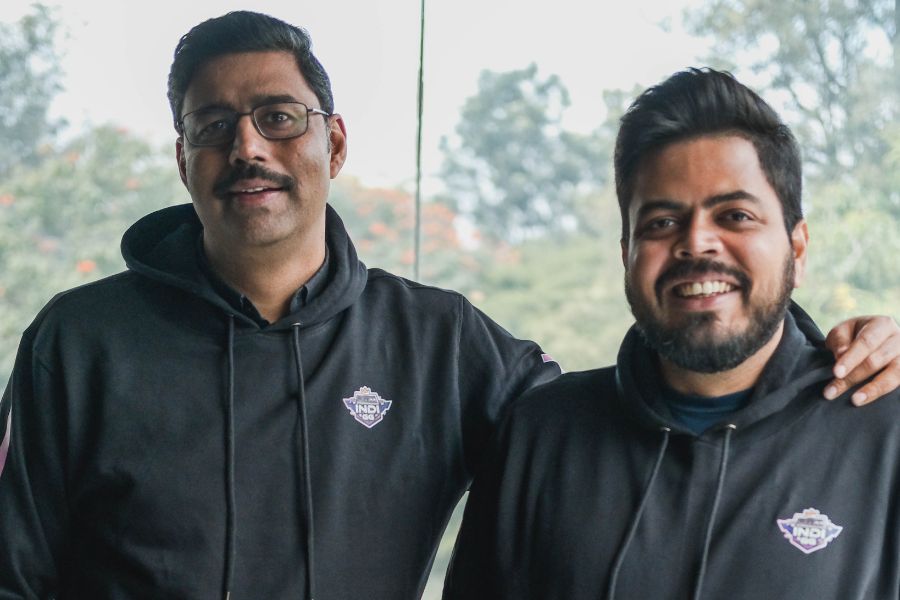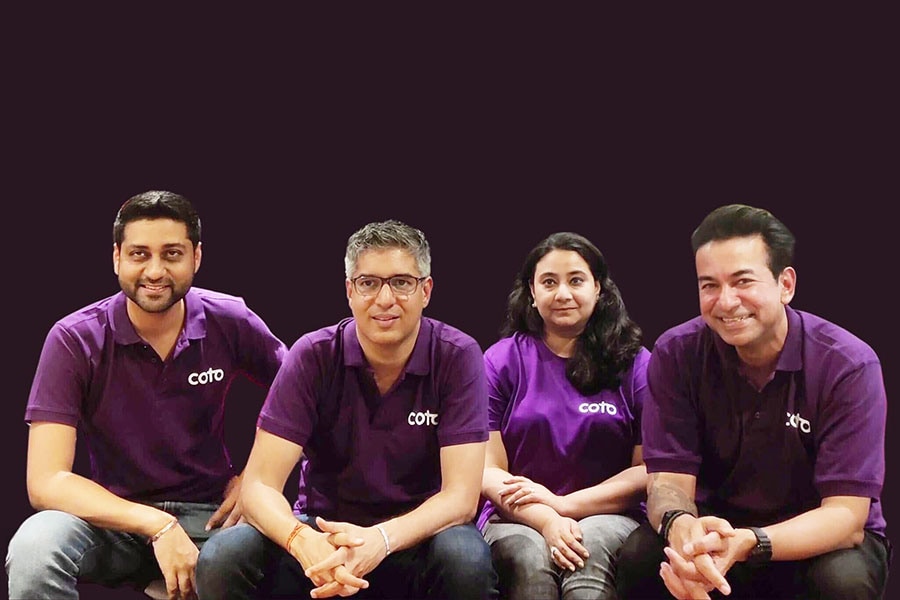From Web2 to Web3: Two former CEOs bet big with their new startups
Manish Agarwal of Nazara Technologies and Tarun Katial of Zee5 are aiming to disrupt the status quo by giving back control to gamers and content creators


Last year in December, Manish Agarwal stepped down as the chief executive officer of diversified gaming and sports media company Nazara Technologies. After spending seven years at the company, Agarwal decided to launch his own startup in the Web3 world.
Agarwal, along with Ishank Gupta, an angel investor, has come up with a new Web3 gaming venture called Kratos Studios. They also recently acquired IndiGG, an established brand, for access to marquee Web3 ecosystem partners. Kratos Studios has raised $20 million from Accel, Prosus Ventures and Nazara Technologies, among others.
IndiGG, a part of Kratos Studios, is building a Web3 gaming DAO (decentralised autonomous organisation) to onboard over 500 million Indian gamers onto the Web3 gaming ecosystem and enable earnings for its members. It partners with gaming studios and developers globally, increasing their chances of success by creating relevant micro communities.
IndiGG’s mission is to make it easy for millions of gamers in India and other emerging markets to onboard their activity log (micro history) on blockchains without them being bothered about tech friction or knowing what blockchain is. Agarwal says the adoption will be driven by a strong sense of underlying utility which a gamer’s micro history unlocks for gamers in the form of asset ownership, reputation ownership and interoperability. “We are solving for friction in wallet creation, on-ramping and off-ramping besides educating gamers on how to leverage their disposal time and skill to earn micro income or supplementary income."
IndiGG seeks to unlock the value of gamers by making them owners of their identity and enabling their identity on-chain. This way, game developers can pay users for their skills and their time with engaged communities and generate higher ROI. IndiGG does this by leveraging Web3 for asset and identity ownership, and disrupting the traditional model of in-game asset purchases where gamers do not own these assets.
 Manish Agarwal and Ishank Gupta, co-founders, IndiGG DAO
Manish Agarwal and Ishank Gupta, co-founders, IndiGG DAO
“We are offering curated and engaged cohorts to game publishers and game developers and enabling them to change their UA (User Acquisition) spends from cost per impression or cost per click to cost per value by only paying when a gamer crosses certain in-game events," says Agarwal talking about the revenue streams. “This reduces effective customer acquisition costs (CAC) for the game developer and offers monetisation to the gamer for their time and skill. IndiGG charges a fee for every quest listing from the game developer."
Similarly, Tarun Katial, former chief executive officer of ZEE5, the video streaming service owned by Zee Entertainment Enterprises Ltd, quit the company end of 2020. He was exploring different avenues, when an incident occurred with his wife, which made him build his new startup. Katial’s wife was trolled on WhatsApp by a stranger, who kept sending her offensive messages and the episode made the couple realise that many women face similar trolls on a daily basis. In October 2021, Katial set up Eve World, a women-only platform. And after months of research, in January this year he launched a Web3 app called coto, short for coming together. Katial also roped in his ex-colleagues Aparna Acharekar, Rajneel Kumar and Avi Kumar to build this safe space for women.
 From left: Avi Kumar, Tarun Katial, Aparna Acharekar and Rajneel Kumar, co-founders of coto
From left: Avi Kumar, Tarun Katial, Aparna Acharekar and Rajneel Kumar, co-founders of coto
Coto is a social community app exclusively for women to have authentic and interesting conversations with each other. It provides synergy between content creation and community building, in which every user holds actual value and ownership of the content that they create.
Women can create their own online public and/or private communities on the app, share video, audio and text content, and interact freely with their peers. Members can discover the communities easily and join them to network, discuss topics that interest them, and learn from one another. The app already has 200,000 subscribers, and over 4,000 communities. The company has raised over $7 million from Singapore-based Jungle Ventures, Polygon and other angel investors.
“One of the key differences we wanted to make in the life of the creators were out of the pain points that are very apparent in the current social ecosystem. Creators create all the content, they create all the network effects, entire piece of marketing and promotion, and in return they get caught up in hard algorithms, making it difficult to monetise their own content," Katial tells Forbes India.
Content creators have a tough time building their reach on a platform and there are very apparent creator pain points in the economy. Coto wants to help the creator economy by rewarding them for everything they had not been rewarded for—content creation, engagement, network effect, referral, all of that. “We want to make sure they are a part of the platform, they have skin in the game, for all their effort. Helping creators overcome this entire pain point of monetisation led us to build it on Web3, which is decentralised, where the content creators have control over their own content," adds Katial.
The coto app rewards community creators with referral points and a bonus for every member that joins the community. There is also something called the coto gains programme, a referral programme where women can earn 1 coto gains per referral. The objective of the programme is to acquire users organically based on a network effect.
“As the creator benefits, she creates a network effect on the platform. We create growth on the platform through that, so more content, more referrals create a more network effect, and that gives us a wider reach for the platform," says Katial.
First Published: May 19, 2023, 14:16
Subscribe Now